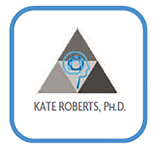Always dream and shoot higher than you know you can do. Do not bother just to be better than your contemporaries or predecessors. Try to be better than yourself. — William Faulkner
Understanding the difference between healthy striving and perfectionism is critical to laying down the shield and picking up your life. Research shows that perfectionism hampers success. In fact, it’s often the path to depression, anxiety, addiction and life paralysis. — Brené Brown
At its root, perfectionism isn’t really about a deep love of being meticulous. It’s about fear. Fear of making a mistake. Fear of disappointing others. Fear of failure. Fear of success. — Michael Law
The process of self-perfection is noble and good. Perfectionism is not. What’s the difference?
Self-perfection asks the question:Who should I be? What type of person should I become? What is a good person? How can I become a better person? Perfectionism is different. Perfectionism doesn’t ask anything; it simply demands:“Be the best in all things, or else you are nothing.” The quotation by Michael Law is correct. Perfectionism is about fear. I fear that unless I am the best, I am no one.
The Quest for Self-Improvement
There are two parts to the process of cultivating a more perfect self. The first is embodied in the quotation from Faulkner (above). It is about self-improvement. It is about cultivating oneself – about being a better or increasingly virtuous person over time. It is not about competition, praise, adulation or doing better than the other guy. It’s about trying to be a better person today than I was yesterday.
Now, in order to become a better person, a better father, a better citizen, a better baseball player, a better anything, we must have some idea of what is good. The simple fact of the matter is that we always measure where we currently are by comparing it to our imagined destination. We compare our current state to some ideal or perfect state. If I want to become a better basketball player, I must have some idea of what an ideal basketball player is like. I know that she has to be able to dribble, shoot, share the ball and so forth. And this follows for anything: If I want to become a better father, I must have some idea of what an ideal father is like. If I want to become a better citizen, I must have some idea of what an ideal citizen is like. We can’t have progress unless we have some sense – however vague – of what we are progressing toward. Our sense of what is ideal or perfect in some area defines our target. It orients us. It tells us which direction to go. So, perfect is not a four-letter word.
So, self-perfection asks the question:“What can I do today to be a more perfect person?” But it does so fully aware that perfection is not possible. Nothing is perfect. No one is perfect.
But if this is true, isn’t the quest for self-perfection doomed to fail? Won’t the quest for the impossible ultimately kill me – or at least be exhausting?
Appreciating the Present Moment
This is where the second part of the process of self-perfection comes in. The first part of self-perfection involves attempting to become a more perfect person – striving for self-improvement. The second part of self-perfection is as important as the first: it involves appreciating where we are in the moment.
It is good and noble to strive to become a better person. The reality, of course, is that we can never be perfect. No matter how good we become, we can always do better. Our ideals are only guideposts – they tell us which direction to go in order to improve. But that does not mean that who we are now is not good. The second essential component of self-cultivation is appreciating where we are right now in our lives. And by right now, I mean right now – this very moment.
Ask yourself: What can I appreciate about the present moment? What do I have to be grateful for? What is good about who I am now? What good can I find in this very moment?
And this is the difference between the slow and gentle process of cultivating a more perfect self and the demanding and damning immediacy of perfectionism. Perfectionism cannot rest until it attains the impossible. But the process to become a more perfect self is a life-long one that involves both continuous cultivation and appreciation.
The Twin Processes of Cultivating and Appreciating
We can never be perfect persons. But we can be more perfect persons. Paradoxically, the process of becoming more perfect is exactly the opposite of being perfectionistic. Perfectionists don’t make mistakes. How could they? They’re perfect! People who work toward self-perfection are humble. They know that they are imperfect and cannot be otherwise! They not only make mistakes, but they are aware that they can only become more perfect by being willing to take risks and make mistakes. We can only become more perfect by being willing to be imperfect. This sentiment is echoed in the quotation from Brené Brown that was shared at the beginning of this article.
Cultivating a more perfect self requires humility, not bravado. The process of appreciating the moment is part of this humility. If I know that I cannot be perfect, I have two choices: I can lament my imperfections, or I can appreciate my progress and what is good about my present circumstances. Cultivation and appreciation go hand in hand.
Do you know the children’s song, “Oats, Peas, Beans and Barley Grow”? It is a lesson in cultivation and appreciation. The farmer knows how oats, peas, beans and barley grow. They grow by dint of hard work. But then, after planting the seeds, the farmer “takes his ease/stamps his feet and claps his hands/and turns around to view his land”.
Oats, Peas, Beans and Barley Grow
Oats, peas, beans and barley grow Oats, peas, beans and barley grow Do you, or I, or anyone know How oats, peas, beans and barley grow? First the farmer plants the seed Stands up tall and takes his ease Stamps his feet and claps his hands And turns around to view his land Then the farmer waters the ground Watches the sun shine all around Stamps his feet and claps his hands And turns around to view his land After weeks of sun and air The farmer picks the crops right there Stamps his feet and claps his hands And turns around to view his land

















